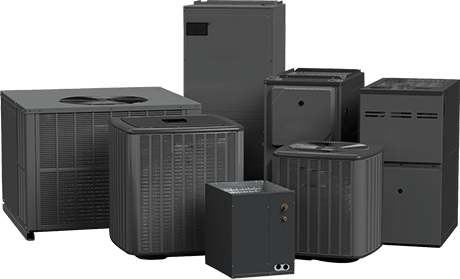You instinctively turn to your air conditioner for respite when the summer heat becomes intolerable. Because the air-conditioning cycle demands that the outside temperature be less than the heat released from the unit, air conditioners work harder as outdoor temperatures rise.

Temperature Limit
Most air conditioners are made to function in temperatures below 100 degrees Fahrenheit. The AC no longer works as intended by the manufacturer once the temperature exceeds 100 degrees and requires air conditioning repair in Louisville.
The AC’s continued operation is not guaranteed at this time. At the absolute least, the device will use more energy and significantly impact your electricity bill. Maintaining your air conditioner extends its life and improves the likelihood of adequate cooling.
Effects Of Weather Conditions Outside On The Air Conditioner
- It takes more time for the AC to cool: It takes a long time for the room to cool down when the outside temperature is high. On the other hand, the cooling capacity is significant when the ambient temperature is low.
- Outside temperature influences the room’s temperature: The cooling an air conditioner offers varies depending on the weather. According to air conditioning service in Louisville experts, the ambient temperature might fluctuate between being too cold and being too warm.
- AC produces more drain water: Because warm air is more humid, air conditioners produce more drain water when the ambient temperature is more significant. However, the amount of drain water returns to normal after the interior temperature drops.
- The AC uses more power: We know that an air conditioner must work more to cool a space when the outside temperature is high. One may have noticed that the ideal temperature for the air conditioner in energy efficiency is around 25°C.
- Hot weather reduces AC lifespan: Experts of air conditioning services in Louisville, suggest that depending on the region, the manufacturer, and the model, most air conditioners can work in cooling mode anywhere from 10°C to 45°C. When operating continuously in high outdoor temperatures, air conditioners must work harder than when running in lower outdoor temps. The air conditioner’s lifespan could become shorter.
- The outdoor unit produces more heat: When the outdoor temperature is high, the air conditioner’s outside unit releases more heat. As a result, particularly if the outdoor unit is poorly ventilated, you can notice a buildup of heat surrounding it.
Ways To Lessen How Much The Outside Temperature Affects The Air Conditioner:
- Maintain frequent AC cleaning: In addition to the heat, a dirty air filter and cooling coil can strain your air conditioner. To maintain your air conditioner’s effectiveness, clean it once every two to three months.
- Verify the refrigerant pressure is appropriate: The refrigerant required will depend on the local temperature. When the temperature outside is high, the pressure of the refrigerant likewise rises. A technician must charge the air conditioner properly, considering the running current.
- Ensure that the outdoor unit has adequate ventilation: Avoid placing the outside unit in an area with inadequate ventilation. Your air conditioner may malfunction if the temperature outdoors slightly rises. An outdoor unit’s insufficient ventilation will result in high power usage. The lifespan of the air conditioner will also be shortened.
Conclusion
Your AC will receive regular maintenance as part of C & L Heating & Air. Call us at 502-969-7016 for optimal AC replacement in Louisville.






